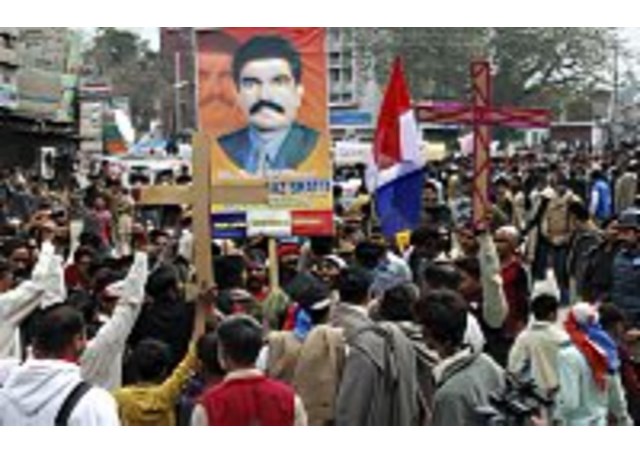
Pakistan agrees to increase minority parliamentarians

A Pakistani parliamentary body has agreed to a constitutional amendment to increase the number of reserved seats for the country's religious minorities.
The move, which came the day before the fifth anniversary of the slaying of former minority affairs minister Shahbaz Bhatti on March 2, 2011, was welcomed by minority leaders, who called it a positive step.
The National Assembly Standing Committee on Law and Justice made the decision on March 1 to back the move laid out in a constitution amendment bill put forward in 2014 by Asiya Nasir, a Christian member of parliament.
"The committee reached a consensus to increase the number of reserved seats in National Assembly by five, two each in the Punjab and Sindh assemblies, and one each in Khyber Pakhtunkhwa and Baluchistan," an official statement said.
When adopted, the number of reserved seats for minorities in the national assembly will rise to 15. Minorities are currently allowed 10 reserved seats in the national parliament.
Tahir Naveed Chaudhry, head of Pakistan Minority Alliance, welcomed the committee's decision to accept a "long-standing demand of minorities." He said the former alliance chief and slain former minister Shahbaz Bhatti, a Catholic, had tabled the motion some years ago, but it was deferred at the time.
He said it is only right that the number of reserved seats be increased since there are now more seats in parliament than there used to be. "There were 10 reserved seats when the house consisted of only 210 members. Now the assembly has 342 seats in total, and the reserved seats have remained the same," he said.
Ramesh Kumar Vankwani, head of Pakistan Hindu Council, gave a cautious welcome to the decision. "We have been demanding an increase in minority seats as well as the direct election [of minority Members of Parliament] through secret ballots," he said. "Minorities have been deprived of their constitutional right to elect their own representatives," he said.
Muslim political parties currently select minority Members of Parliament through a proportional representation system. The Supreme Court of Pakistan last year ruled that this method does not conform to any of the principles of democracy and that minorities should be allowed to choose their own representatives. The Supreme Court has directed parliament to review the election system for minorities.
"It is unfortunate that the Supreme Court's ruling hasn't yet been implemented," Kumar said.
(Source: UCANews)
| All the contents on this site are copyrighted ©. |


